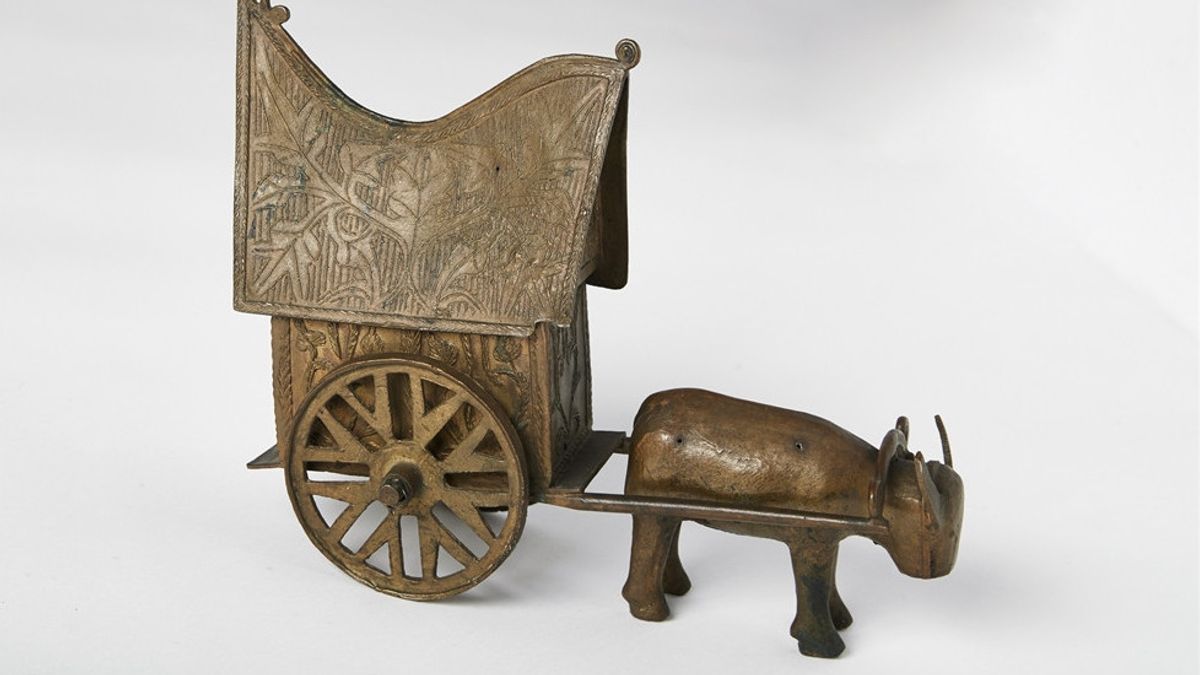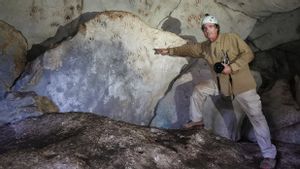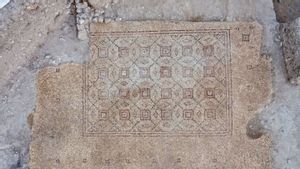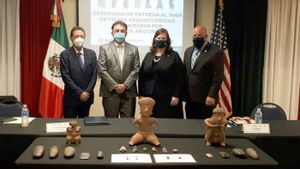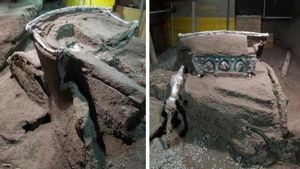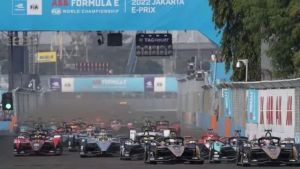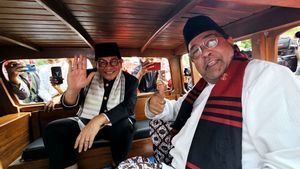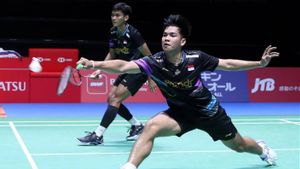JAKARTA - ASEAN Culture House in Busan, held an exhibition entitled 'ASEAN Animals: Depictions of Animals in ASEAN Arts & Cultures'. The activity, which was held to strengthen South Korea's relations with ASEAN, explained how animals are depicted and are associated with certain values in ASEAN.
The ASEAN community has long maintained close relationships with animals such as chickens, buffalo, and elephants. These animals appear in daily life, legends, national symbols or symbols, to art and culture.
"Stories about animals being personified, deified, and imaginary or mythical are found in many legends and folklore of traditional ASEAN cultures," said an official of the ASEAN Culture House, launched Koreatimes, Saturday, May 8.
The exhibition features around 100 works of traditional and contemporary art and audiovisual material, depicting animal images from 10 ASEAN countries, and divided into several categories.

For example, 'ASEAN Symbolic Animals', featuring iconic animals that appear on the national symbols of ASEAN countries, is also featured in this exhibition.
"Visual images of national symbols such as the national flag, the national emblem, and the national seal embody the values and culture that the state believes in," the official continued.
There are also 'Real ASEAN Animals' representing countries or regions including the Komodo dragon from Indonesia, the rhinoceros hornbill found in the forests of Malaysia, and the Southeast Asian islands of Sumatra, Java, and Kalimantan.
Not to be missed, the artworks of 'Imaginary Beasts' are also displayed through fairy tales and ancient legends, such as the Singapore Merlion, which has the head of a lion and the body of a fish, as well as the Cambodian royal animal Gajasingha (lion with the trunk of an elephant) and Rajasingha (the mythical royal lion).
Meanwhile, the category 'Animals and Everyday Life in ASEAN', featured animals related to hunting and breeding. The main artifacts on display include the 'Pedati Model' from Indonesia which features a cart pulled by a buffalo, while the 'Sulaman Hmong' from Laos depicts animals from the area.
Korean artist Cho Han-jin creates video art that creates animal shapes in the languages spoken in ASEAN countries.
In addition, 'Animals in Religious Symbolism' displays glimpses of animism throughout the ASEAN region because people believe that they are sacred beings, bridging other worlds and the earth.

Personified and deified animals also appear in ancient Hindu and Buddhist fairy tales. In the Hindu epic 'Ramayana', Hanoman is a deity in an ape-man who symbolizes courage, strength, and power. Elephants are also popular in ASEAN culture as animals that are considered to be worldly manifestations of Buddha himself, symbolizing patience, loyalty, and wisdom.
Seo Dong-joo's two-channel video, Caroline Reize, Rooah, and Ken Pyun, entitled 'Animal Beats', features tropical rainforest and ocean sounds depicting animals using multi-sensory methods that inspire observers.
Want to see mythical animals in ASEAN? There is a category 'Mythical Animals in ASEAN' centered on the region's various mythical animals, which are often found in royal palaces, religious structures, and works of art.
The distinctive form of an imaginary being is a mixture of various species. The Singapore Merlion icon is half lion, half fish, and Garuda Indonesia is depicted as a human with wings and a head like an eagle.
The Himavanta, a legendary forest in Hindu mythology, is home to many imaginary animals, and variations of this fictional animal appear in local folklore in the ASEAN region, offering a glimpse into the creativity of ASEAN peoples.
Arisong Media Factory's interactive installation, 'Shadow Forest Story' brings to life this mythical animal inspired by Indonesian shadow puppets.
The plan is that the exhibition of all works of art about animals in ASEAN will last until August 1, free of charge.
SEE ALSO:
For your information, the ASEAN Culture House, established to commemorate the 2014 ASEAN-ROK Commemorative Summit in Busan and operated by the Korea Foundation, presents various exhibitions to highlight the history, society, and culture of the 10 ASEAN member countries.
The English, Chinese, Japanese, Arabic, and French versions are automatically generated by the AI. So there may still be inaccuracies in translating, please always see Indonesian as our main language. (system supported by DigitalSiber.id)
